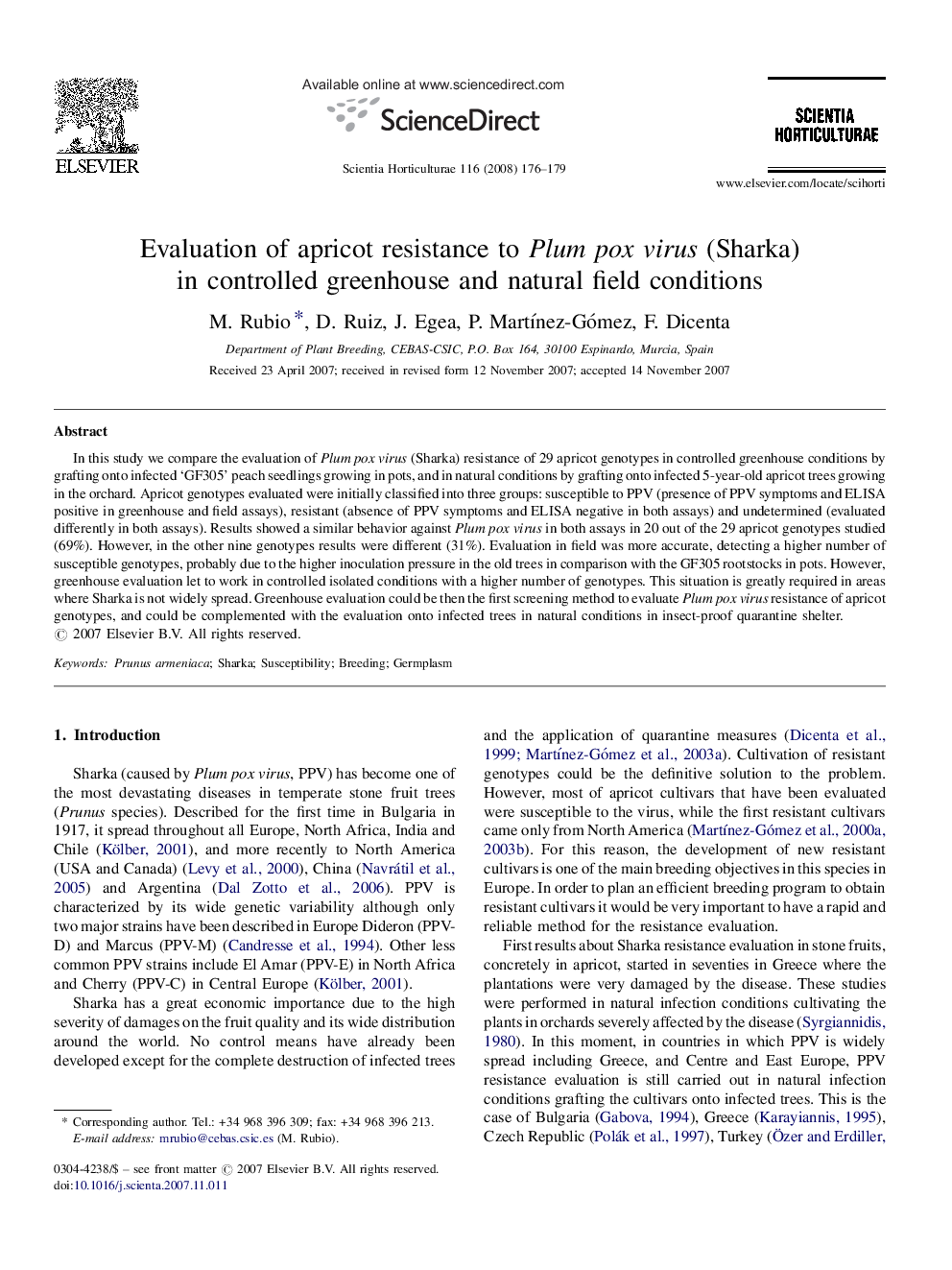| Article ID | Journal | Published Year | Pages | File Type |
|---|---|---|---|---|
| 4569786 | Scientia Horticulturae | 2008 | 4 Pages |
In this study we compare the evaluation of Plum pox virus (Sharka) resistance of 29 apricot genotypes in controlled greenhouse conditions by grafting onto infected ‘GF305’ peach seedlings growing in pots, and in natural conditions by grafting onto infected 5-year-old apricot trees growing in the orchard. Apricot genotypes evaluated were initially classified into three groups: susceptible to PPV (presence of PPV symptoms and ELISA positive in greenhouse and field assays), resistant (absence of PPV symptoms and ELISA negative in both assays) and undetermined (evaluated differently in both assays). Results showed a similar behavior against Plum pox virus in both assays in 20 out of the 29 apricot genotypes studied (69%). However, in the other nine genotypes results were different (31%). Evaluation in field was more accurate, detecting a higher number of susceptible genotypes, probably due to the higher inoculation pressure in the old trees in comparison with the GF305 rootstocks in pots. However, greenhouse evaluation let to work in controlled isolated conditions with a higher number of genotypes. This situation is greatly required in areas where Sharka is not widely spread. Greenhouse evaluation could be then the first screening method to evaluate Plum pox virus resistance of apricot genotypes, and could be complemented with the evaluation onto infected trees in natural conditions in insect-proof quarantine shelter.
